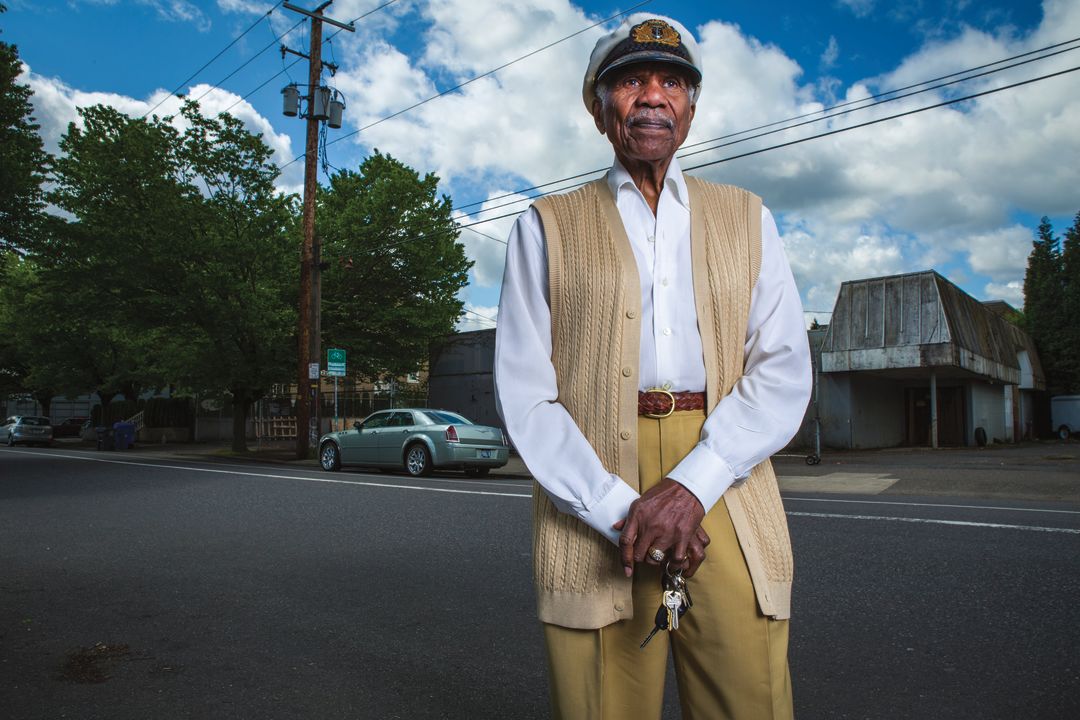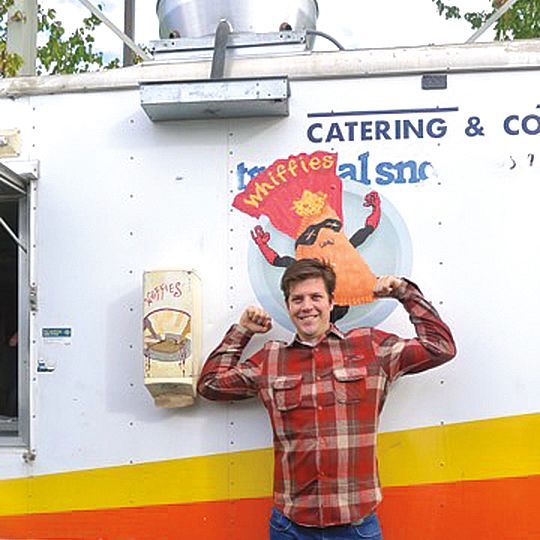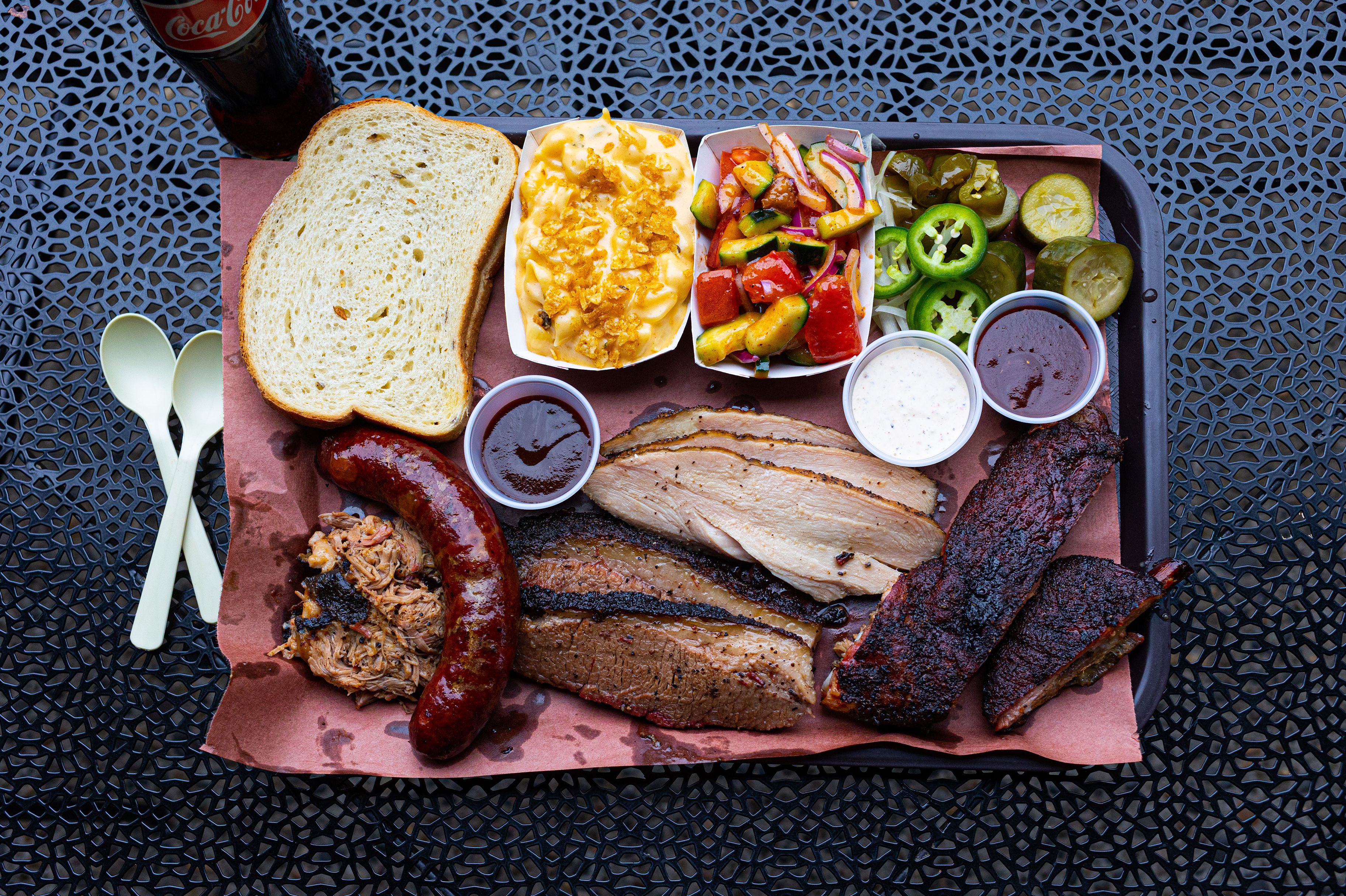Revisiting the Mid-Century Jazz Clubs and Soul Food Kitchens of Portland’s Albina Neighborhood

Paul Knauls, in front of the North Portland lot once home to his Cotton Club
Image: Courtesy Andy Abeyta
Before it was gutted by civic projects and repurposed as a chic bike thoroughfare, North and Northeast Portland’s Albina area was a compact universe of black-owned businesses, anchored by the jazz clubs and soul food kitchens that lined North Williams Avenue in the 1950s, ’60s, and ’70s. “There was Sallie Robinson’s Blue Monday, Sallie could cook. And the most popular place was Scotty’s Bar-B-Q,” remembers Paul Knauls, who owned both the legendary jazz hangout Cotton Club and Geneva’s Restaurant and Lounge along the same strip. “Scotty was so mean, like that Soup Nazi from Seinfeld. There was always a line out the door, but it was up to him if you got served.”
Knauls, who now owns Geneva’s Shear Perfection barbershop, moved to town in 1963 to open the Cotton Club, which hosted greats like Big Mama Thornton and Sammy Davis Jr. Geneva’s, named for his wife and business partner, followed in ’68, a community hot spot where an East Coast kitchen ringer Jim “Boss” Parks heaped plates with rotisserie ribs, huge ham hocks, and brown-bottomed peach cobbler, the pot liquor from his signature stewed collard and turnip greens drizzled over perfect corn bread. “Oh my gee, they were good,” remembers Knauls, who, at 85, is known as the unofficial “Mayor of Northeast Portland.” “You could see the cholesterol jumping out at you.”
Lunch crowds were diverse, including white restaurateur Henry Ford, who owned a popular eponymous steaks-and-piano bar in Southwest, as well as Portland’s first black city commissioner, Charles Jordan. (“One night he came in because he wanted us to teach him the hustle,” says Knauls with a chuckle. “Oh, we did.”) At night, the adjacent lounge’s jukebox thumped with the hottest records, James Brown to Jackie Wilson. The records were plucked from East Coast clubs by railroad porters and often delivered straight to the restaurant months before white crowds ever heard them.
Despite the vibrant community, the city’s plans to build the Memorial Coliseum and Interstate 5 razed whole blocks of the neighborhood through the 1960s; a decade later Emanuel Hospital demolished nearly 200 homes and businesses for an expansion, including a pool room and lounge owned by Knauls, only to lose funding. Those blocks still stand empty today. Knauls sees little hope that the district can mount a return, citing the multiple cycles of gentrification that have pushed many black longtime residents to Troutdale and Gresham. He shakes his head as he looks over his wall of memorabilia, boasting photos with Muhammad Ali to Cab Calloway. “That train left the station a long time ago.”













